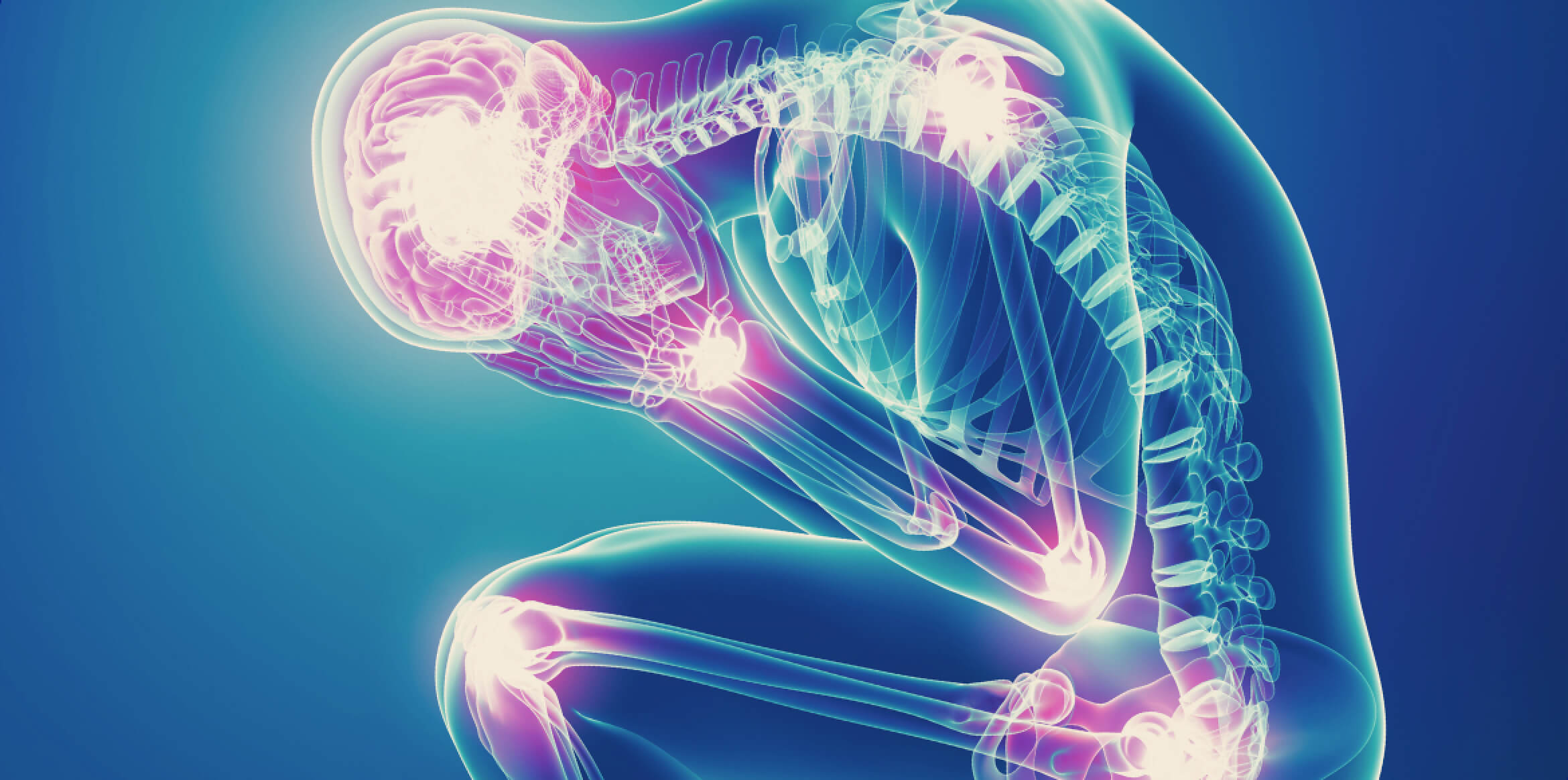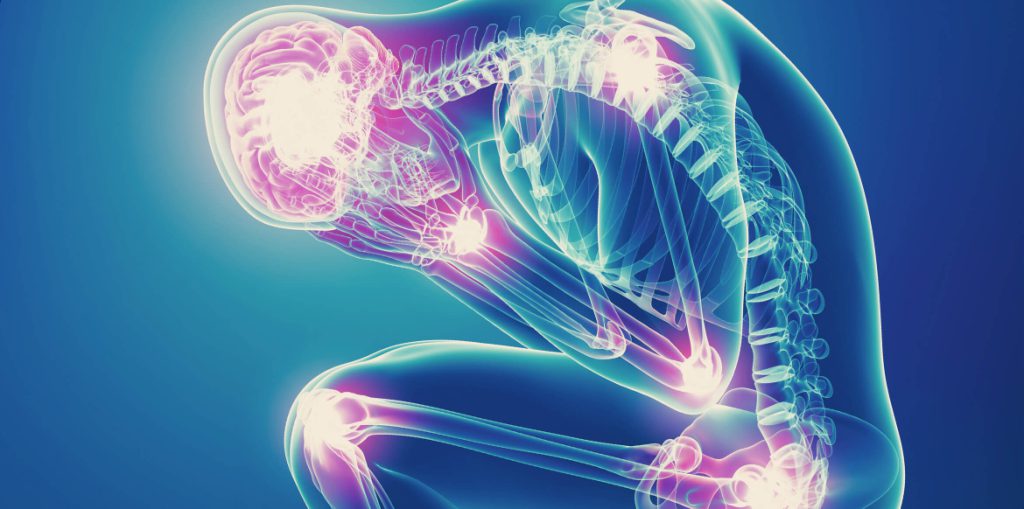Fibromyalgia and Bowen Therapy
FIBROMYALGIA (fi·bro·my·al·gi·a)
What is Fibromyalgia?
Fibromyalgia is a condition marked by widespread pain in the musculoskeletal system. It is accompanied by fatigue, sleep, mood and memory issues. Aside from these people may also suffer from mental, emotional and psychological distress.
It develops between the ages of 25 to 55 years although children can also get this. It is also believed to affect more women than men.
In the U.K. there are an estimated 1.8 to 2.9 million people suffering from this debilitating condition.
The cause is not yet fully known although there are various theories and speculations regarding its onset.
What are the causes of Fibromyalgia?
There are various speculations and theories as to the onset of Fibromyalgia;
- Some believe it could be related to a change in the way pain is perceived by the Nervous system. It could be said that the Central Nervous System (C.N.S.) is misfiring messages of the body being in pain to the brain as being in agony. This is thought to be attributed to certain chemicals in the brain being present at abnormal levels.
- There is also a belief that it may be a genetic disorder passed down from the parents.
- Another factor could be a trauma of some sort i.e. loss of a loved one, abuse, relationship issues.
- Disturbed sleep is thought to be not just a symptom but also a possible cause of Fibromyalgia.
- Injury, infection or operation are also thought to be possible triggers for this condition.
What are the symptoms of Fibromyalgia?
Amplified sensitivity to pain
Fibromyalgia is a condition where there is a malfunction in the way that the brain perceives pain in the body.
In the brain and the nervous system, we have chemicals known as Neurotransmitters which relay messages between the brain and the nerves in the body. This includes a protein (substance P) which is not only a neurotransmitter but also a Neuromodulator. This has the ability to amplify the pain signal.
Therefore what may seem nothing more than gentle pressure to a non-sufferer may be perceived as agonising pain by the person suffering from Fibromyalgia. (https://patient.info/signs-symptoms/tiredness-fatigue/fibromyalgia#nav-1)
- Disturbed sleep is thought to not only be a symptom but also a possible trigger for Fibromyalgia.
- Depressions and anxiety are also thought to be possible triggers and not just symptoms of this condition.
- Fatigue – can range from mild to a feeling of extreme tiredness which can come on at any time and can be completely draining to the point where they can’t do anything.
- Cognitive issues (Fibro-Fog) – this is a condition that affects memory, learning, thinking, attention, concentration and speech.
- Digestive issues – May suffer from conditions like irritable bowel syndrome (I.B.S.) causing abdominal pains, bloating, constipation or diarrhoea and also Irritable bladder condition where one needs to pass urine more frequently.
- Muscle weakness can also occur as a result of a lack of sufficient exercise due to the pain.
- May also experience Headaches and dizziness.
- Due to the inability to regulate body temperature may feel too hot or cold.
- All the above can result in depression and anxiety.
This list is by no means exhaustive but just some of the things reported by Fibromyalgia sufferers.
What Are Fibromyalgia tender points?
Tender points as the name suggests are specific areas where one feels soreness and pain. The diagram shows some of the common points where sufferers of Fibromyalgia feel tenderness.
These include;
- The Neck
- Back
- Elbows
- Waist
- Hips / Pelvis
- Knees

Tender points are often used to diagnose Fibromyalgia. The diagram above shows some of the typical ones although not everyone suffering from Fibromyalgia will experience all of them and there are many more such points.
During the assessment the doctor may press on these tender points. The pressure applied would not be painful for most people but for someone with Fibromyalgia, it may be severe enough to make them flinch.
How Is Fibromyalgia Diagnosed?
Fibromyalgia is a difficult condition to diagnose. Typically the doctor will look for;
- Tenderness – During the assessment the doctor may press on specific tender points. The pressure applied would not be painful for most people but for someone suffering from Fibromyalgia, it may be severe enough to make them flinch.
- Another criteria is that the person should have had tenderness for over three months in both the upper and lower parts of the body.
- Fatigue and exhaustion.
- Fibro Fog or cognitive issues like memory, understanding and speech issues.
What treatment options are there for Fibromyalgia?
As Fibromyalgia is not caused by any injury or damage to any muscles, ligaments or tendons therefore just providing symptomatic treatment to the affected areas may not be the answer.
The brain is being misinformed through the nervous system about the pain i.e. the sensation is being amplified so the brain perceives it as strong pain. Therefore effective treatment lies in addressing the Central Nervous System to correct the signals being relayed to the brain and to prevent them from being amplified.
Bowen Therapy works directly through the Nervous system to stimulate the Autonomic Nervous System to correct and rebalance the body. This has the ability to correct muscles, bones, and also soothe the Nervous system.
Although there is still a long way to go to scientifically prove that Bowen Therapy is effective in helping with Fibromyalgia; there are numerous cases where it has shown profound results in lowering pain levels experienced by the clients.
Is Fibromyalgia classed as a disability in the U.K.?
Fibromyalgia is recognised as a ‘real and potentially disabling’ condition by the Department for Work and Pensions.
To read the details of the Department for Work and Pensions perspective in relation to state sickness and disability benefits for Fibromyalgia sufferers please follow the link below.
http://fibrotrust.org/dwp-working-benefits/
Resources
https://patient.info/signs-symptoms/tiredness-fatigue/fibromyalgia#nav-1
https://www.nhs.uk/conditions/fibromyalgia/symptoms/
http://fibrotrust.org/dwp-working-benefits/
https://www.versusarthritis.org/about-arthritis/conditions/fibromyalgia/
How Bowen Therapy Can Help Fibromyalgia
Although the painkillers and the anti-inflammatory drug may provide some relief, they do not fix the actual issues in the joint; they merely temporarily mute your body’s cry for help. Bowen Therapy works directly with your brain through the nervous system to relax and relieve strain in the muscles and nerves in your joints and strengthen from the inside. As it is working with and on the nerve cells in your fascia, it is extremely gentle thereby preventing a defensive reaction from the brain.
I have treated patients with mild to severe R.S.I. and they are all now managing without any drugs.
Contact me now to see how I can help you, too.
What a client said:
Lynn
“Two months ago I was in tears with the pain and it’s improved so much. I can’t thank you enough. Now I’m looking forward to doing things I haven’t done for the last two years. I’ve got actual plans now because my movement is improving. I really didn’t think a few sessions with you would make any difference but I can see the improvement.”







